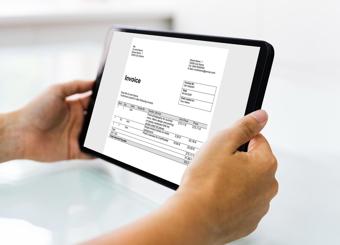5 things to make buying for temporary events easier
Whether its music, sport or popular culture, there are now a whole host of temporary events taking place up and down the country every year.
The rising popularity of these events got us thinking about their purchasing requirements and how increasingly complex they are becoming. We reached out to our buying community and spoke with some procurement professionals who handle this on a daily basis and still have time to don their wellies and enjoy the events themselves!
Unsurprisingly, regardless of the type of event it all comes back to putting good procurement practice in place to ensure cost-effective and efficient purchasing is made on a temporary basis.
Here we take a quick look at 5 things purchasing professionals can do to make buying for temporary events that little bit easier.
1. Effectively manage supplier relationships
Managing supplier relationships when buying for temporary events can offer benefits in terms of monetary savings but can also minimise risk.
With a shopping list often spanning thousands of items, it is essential that supplier relationships are well developed and that contracts and specifications are devised according to procurement best practices.
Suppliers need to be fully vetted to reduce risk and protect the future reputation of the event, we can all recall the high-profile G4S issue at the London 2012 Olympics…
2. Choose the right purchasing team
Building a temporary team of buyers with the right experience is essential to make purchasing for these events successful.
As far in advance as possible, potential candidates for the procurement team need to be located using a reputable agency and they then need to undergo a thorough interview process to ensure that they have the experience required to apply to the particular event.
The fact that these buyers will need to come together at relatively short notice to deliver a cohesive procurement approach presents a challenge for even the best event organiser, but with careful consideration and planning, selecting the right people can be relatively straight forward.
3. Embrace collaboration
With the temporary events sector getting larger and more varied every year, there is a definite opportunity for collaboration.
The events sector could benefit from using a marketplace of experienced, pre-defined suppliers across regular categories in order to pool their power – facilities management, waste management, security and temporary staffing to name just a few common spend needs.
4. Utilise past data
The focus needs to be on making the right supplier selections and to minimise waste for buyers in this unique space.
Forecasting is clearly more difficult without historical insight or a regular purchasing cycle to analyse, but most successful events are repeated and this provides an opportunity to procure accurately and cost effectively.
Utilising data from previous events can help the event organisers to do more procurement planning during their seasonal downtime and ensure the processes are formalised to also prevent any emotive purchasing.
5. Delivering a great experience
We all know that purchasing decisions can have a direct impact on the visitor’s experience of a temporary event. For example, if operational costs are kept low, there will be more money available to attract a bigger headline artist or a larger range of catering options. It is important to consider that many event organisers place experience above best value, so working alongside the event management team will also be key to delivering a great event.
When purchasing for any event it is critical that good purchasing practice is put into place but this becomes even more critical when buying for temporary events as the need to get it right the first time is essential to maintaining good relationships with critical suppliers and keeping costs down for future, and hopefully more permanent events.






